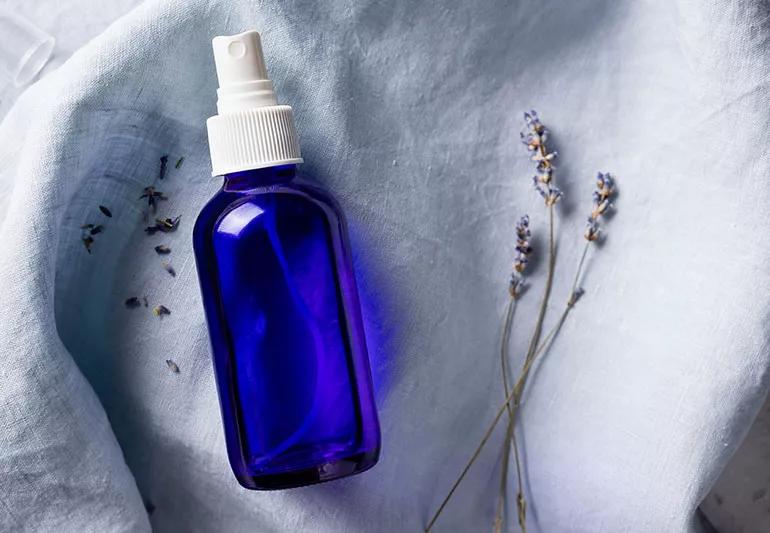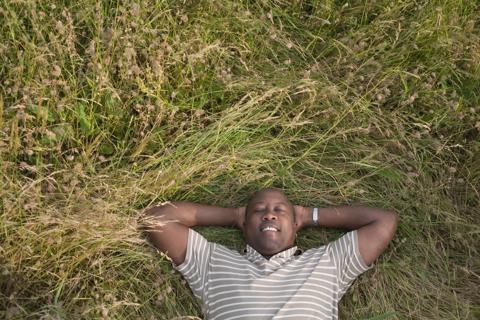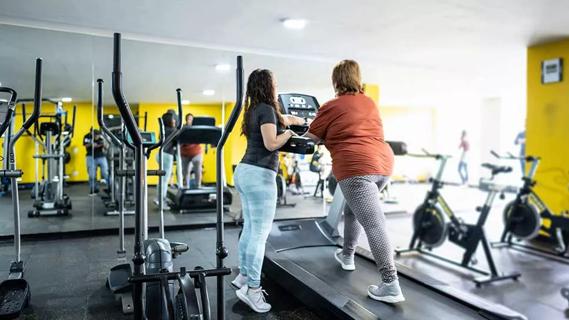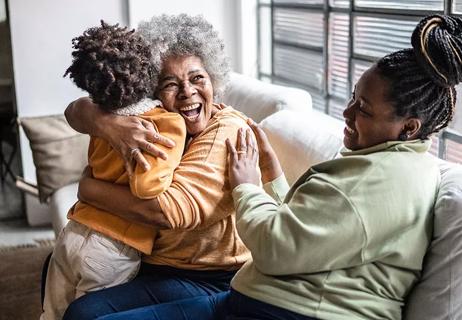The benefits of lavender and how to use it

Best known for its fragrant purple blossoms, lavender is a perennial plant (regrows every year) that’s also known for its health benefits.
Cleveland Clinic is a non-profit academic medical center. Advertising on our site helps support our mission. We do not endorse non-Cleveland Clinic products or services. Policy
“That trademark smell comes from oil in the flower, which has medicinal properties. But the flower itself has medicinal properties, too,” says integrative medicine specialist Yufang Lin, MD.
Dr. Lin explains what lavender is good for and how to effectively use it.
Traditional herbal textbooks and research studies alike confirm lavender’s role as a health jack-of-all-trades. That’s because the plant’s parts contain different chemical compounds that positively affect your body.
“These compounds include flavonoids, which are also found in vegetables and fruits, and coumarin. Both have anti-inflammatory and antioxidant actions,” explains Dr. Lin. “Lavender essential oil is just as powerful and contains important compounds such as linalool. Linalool has been shown to reduce anxiety and blood pressure.”
From its ability to boost your mood to reducing colic symptoms, Dr. Lin shares lavender’s eclectic list of potential benefits:
Additionally, an animal-based study found that lavender oil aided wound healing by improving the skin’s ability to produce collagen post-surgery.
You can use lavender in these forms:
The sky’s the limit when it comes to uses for lavender essential oil. Essential oils are concentrated plant extracts. Because they are so strong, use them sparingly and with care.
Dr. Lin suggests trying a few drops of lavender essential oil in:
If you plan on using lavender essential oil on your skin, Dr. Lin notes the importance of diluting it with another oil. Good oils to use are ones you aren’t allergic to and might include:
To make your mixture:
“To make a homemade cleaning solution, add a few drops of lavender essential oil to distilled water, some vinegar and a few drops of castile soap. The vinegar and soap help cut grease, and the soap and lavender have antimicrobial properties,” explains Dr. Lin. “You also get that beautiful scent.”
“Lavender essential oil does not include the water-soluble part of the plant. When you make lavender extract, you use both the oil- and water-soluble parts of the plant,” explains Dr. Lin. “With lavender extract, you take the flower and cover it with some form of liquid, usually a combination of water and alcohol, to extract the medicine out.”
You can capsulize lavender extract into a pill you can take. “But you need to be judicious and make sure you have the proper dose,” advises Dr. Lin. “Because it’s so strong and toxicity is possible, do this under the supervision of a well-trained herbalist who knows how to properly use it.”
Dr. Lin says just breathing in the fragrance of a lavender blossom provides big benefits. To enjoy it as aromatherapy, use the flowers to make:
Dr. Lin also suggests using dry or fresh lavender flowers in your cooking. “Lavender is an ingredient in the French spice mixture, herbs de Provence. But be careful how much you use. Too much lavender can make food or tea taste soapy.”
It depends. “If you’re using lavender to improve mood, essential oil aromatherapy is the way to go,” says Dr. Lin. “If you’re using it for muscle pain or soreness, apply lavender-infused massage oil directly to the area of discomfort.”
But Dr. Lin adds that lavender tea may give you the most bang for your buck. “The act of making a cup of tea is itself a form of self-care. It gets you into a ‘me-time’ mindset. Then as you drink it, you get both the aromatherapy and herbal part of the lavender.”
While experts consider lavender safe, Dr. Lin says to consider these three cautions:
“Essential oils often work so well because they trigger an emotional memory,” explains Dr. Lin. “For most people, lavender is calming and soothing. But for some, the smell may be associated with a negative experience, such as abuse. If they smell lavender, it may take them back to that place. So if lavender is triggering for you, don’t feel forced to use or try it.”
In one study, three young girls and one young boy with premature breast development had been exposed to lavender oil, including in a soap, cologne or diffuser. When they stopped using the product or removed exposure, the breast development went away.
“It’s important to note that there are subsequent studies that questioned the validity of this one. These products may also have contained estrogen disruptors, so we don’t know for sure whether it was the lavender or another ingredient in the product,” says Dr. Lin. “So take this finding with a grain of salt and consider limiting how much lavender you use for developing children.”
“Traditional herbalists would not use lavender essential oil orally,” says Dr. Lin. “When you use the lavender plant as food or tea, you’re less likely to have a toxic effect because generally, it’s gentle. But because essential oils are so strong, I would be more cautious about using them with food or drink.”
Dr. Lin also notes that essential oils can burn and irritate your mucosa, the lining of your soft palate, throat and tongue. But with the help of an herbalist, it’s safe to explore the many positive impacts lavender can have on your life and health.
Learn more about our editorial process.

Connecting with the Earth and its energy might improve your mental and physical health — but it’s not a cure-all

Research suggests the effect of the supplement, particularly for prostate health, may not deliver believed benefits

Genetics, metabolism and hormonal fluctuations can all make weight loss more difficult

Ask questions, get referrals and consider if someone is a good fit for you and your fitness goals

Studies show the high health cost of spending hours in a chair

Being intentional has far-reaching benefits

PFAS chemicals that make life easier aren’t always so easy on the human body

Hydration and sleep are as important as avoiding dirty surfaces

Your metabolism may torch 1,300 to 2,000 calories daily with no activity

A gentle touch in all the right places may help drain your sinuses